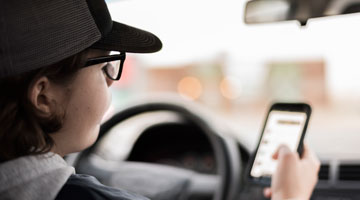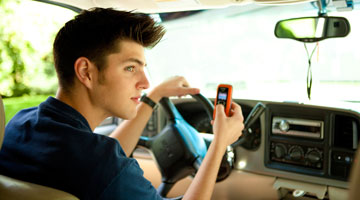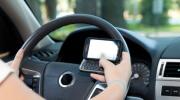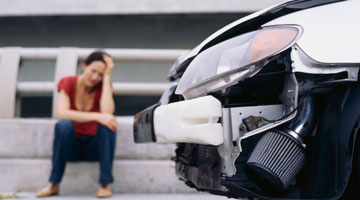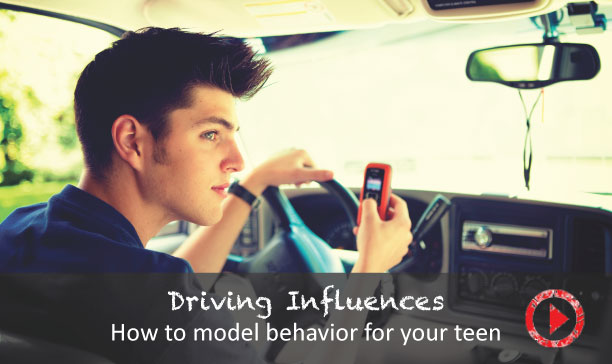Driving
Teen Driving
It seems like just yesterday that your son or daughter was hitting the playground and now they’re ready to hit the road! Teaching a teen to drive can be one of the scariest responsibilities for parents. You are preparing your child to be a safe driver in a world full of bad drivers and plenty of distractions. Every parent wants to feel confident as their teen pulls out of the driveway alone for the first time. Kids in the House has brought together the top parenting experts on teens and driving to help you put another great, safe driver on the roads.
Teen Driving Statistics for 2016
Time for some scary numbers. Car crashes kill more teens than guns, drugs, alcohol, and suicide combined. According to the Center for Disease Control, there are over 2,000 teens ages 16-19 killed in car crashes every year in the United States. Another 250,000 teens are treated in emergency departments for vehicle-related accidents. Teens are the group of drivers with the highest risk on the road due to a lack of experience. This adage has always been true
... Read more
ut for 21st century parents, it comes with additional risks. Talking on a cell phone quadruples the risk of an accident for a teen driver. Texting a cell phone increases the risk 43 times over. As if learning how to drive wasn’t dangerous enough, modern teenagers come with a distracting device buzzing in their back pockets.
Leading Causes of Accidents for Teen Drivers
- Cell phones
- Distractions from other passengers
- Lack of experience
- Speeding or reckless driving
- Driving under the influence
- Nighttime driving
- Food or beverage consumption (other than alcohol)
Cell phones and distractions from other passengers are the two leading risk factors for accidents involving teen drivers.
“Safe driving requires constant, focused attention. So developing a mindset of heightened awareness and focus is key to crash proofing your teen. And the easiest way to do that is eliminate and reduce as many distractions as you can,” says Timothy Smith, driving instructor and author of Crashproof Your Kids: Make Your Teen A Safer, Smarter Driver. Smith is also Chairman of Aegis Mobility, a software company developing technology to manage and reduce cell phone use while driving.
Teen Driving Safety Tips
“Your teen's probably not jumping up and down for joy at the thought of enduring a series of lectures about driving from their parents. Your son's pretty sure that within a week or two he's going to drive better than you, and your daughter would prefer that you just give them the car keys, let their social life blossom, and get the heck out of the way. But most teens don't intuitively understand which driving skills are the most important, or which routes are the most dangerous,” says Timothy Smith.
Smith uses contracts or Crash-Proof agreements to help teens understand the gravity of their driving responsibilities, as well as reinforce that both parent and child are committed to safe driving. Crash-Proof agreements are a great place to establish rules regarding cell phones, number of passengers, nighttime driving curfew and other important behaviors.
“One of the best things you can do to get your team's commitment is to sign what I call a crash-proof agreement,” says Smith. “This is simply a document where you state what you're going to do and what the teen's going to do and you get rewards and penalties built in for your driving behavior and use of the car. It can be a real incentive, a good behavior modifier, and it puts into writing the things that are really important.”
After drawing up your Crash-Proof Agreement, Smith suggests staging behind-the-wheel driving exercises with increasing levels of difficulty. For example, start with parking lots where you teen can practice reversing, turning, and parking in a low risk environment. After your teen is comfortable in the parking lot, move onto residential streets to practice visual scanning and maneuvering around other traffic. Then, find some country roads with higher speeds to practice passing other cars on straightaway, coasting and accelerating out of curves, and braking. After country roads, move to high-speed freeways to practice merging, lane changing, and sharing the road at fast speeds. Smith suggests saving the most difficult environment for beginning drivers for last – busy urban centers with lots of action, distractions, and traffic.
Some parents don’t leave the car entirely, even after sending their teen off with the keys! There are plenty of devices on the market for parents interested in installing video cameras, location tracking, or speed monitoring devices.
“Remember the teen brain is not wired to drive. It is wired to take risk more that it is wired to avoid risk. So, what you say to your child is, it is a terrible invasion of privacy. We understand that we get it but we love you too much to risk you getting killed because we are reluctant to make you feel uncomfortable with the camera in the care. it is for a short time, if we feel you’re are doing a good job, the camera will leave,” says psychologist and award-winning author, Michael J. Bradley.
Kelley King, educational consultant and author, shares Dr. Bradley’s thoughts on the privacy of teen drivers, “As a mom, myself, I believe that if I'm paying for the car, the gasoline, and the insurance, there should be no expectation on the part of my teenage children, to have privacy in the vehicle. Those drive cams are only triggered when something is happening in the car like hard breaking or sharp turning, so if something like that is happening in the car, as a parent, I feel like I have a right to know that. I would rather have my child be alive and to feel like their privacy was invaded, than potentially dead or injured from engaging in risky behaviors. A drive cam is like a way to install that frontal lobe in a child's brain, so when they are not thinking about regulating themselves, the drive cam provides that extra level of supervision.”
Our Top Experts
Whether you need advice on the safest cars on the market for your teen or tips in picking out speed-monitoring devices, the experts at kidsinthehouse.com has all of your teen driving needs covered.










